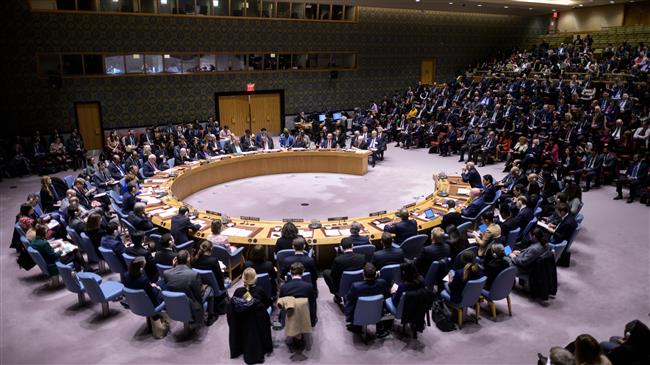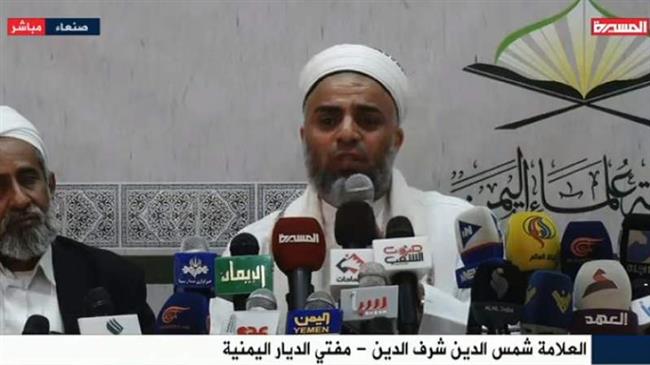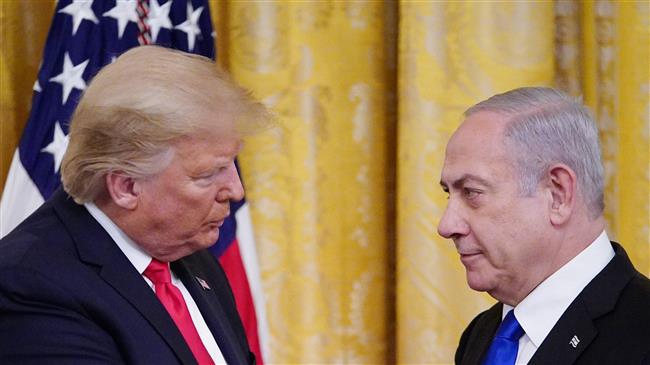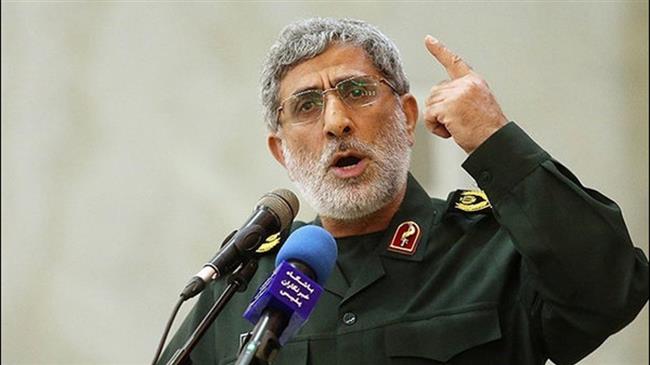Israeli premier pledges to annex more lands of West Bank ‘within weeks’ if re-elected
In an apparent attempt by Israel's scandal-hit premier to secure votes on the eve of a decisive general election, Benjamin Netanyahu has pledged to annex further parts of the occupied West Bank “within weeks” provided that he is re-elected.
Netanyahu, Israel's longest serving premier, made the campaign pledge in an interview with the regime’s public radio on Sunday, stressing that annexation of the strategically important Jordan Valley and other parts of the West Bank have been his top priority among “four major immediate missions.”
“That will happen within weeks, two months at the most, I hope,” he said, 24 hours before polls were scheduled to open for vote-weary Israelis to cast their ballots for the third time in 12 months. Final polls showed yet another tight competition between Netanyahu-led right-wing Likud party and the centrist Blue and White party, led by ex-military chief Benny Gantz.
The incumbent prime minister has already been accused of making last-minute plays to invigorate his right-wing base. However, he has failed to secure enough votes, in the two previous parliamentary elections, to win sufficient seats in the 120-member Knesset and form a majority government. He has also failed so far to form a coalition government.
Netanyahu was particularly emboldened in annexing more Palestinian lands by US President Donald Trump in January, when the latter unveiled his much-delayed and self-proclaimed “deal of the century” during an event at the White House alongside the Israeli premier.
Palestinian groups have unanimously rejected Trump’s one-sided plan, which largely meets Israel’s demands in the decades-old conflict with the Palestinians while envisioning a Palestinian state with limited control over its own security and borders.
The so-called “peace plan” enshrines Jerusalem al-Quds as “Israel’s undivided capital” and allows the regime to annex settlements in the occupied West Bank and the Jordan Valley. The plan also denies the right of return of Palestinian refugees to their homeland, among other controversial terms.
Trump’s plan has triggered waves of protest rallies both across the Palestinian occupied territories and around the globe.
“The joint US-Israeli mapping committee started work a week ago,” Netanyahu further said on Sunday, hoping to emerge victorious in Monday’s election.
However, many fear that the upcoming election fails to break the current political deadlock in the occupying regime and likely turns out to be inconclusive just like the two elections held in April and September, extending a painful political stalemate deep into 2020.
Shortly after Netanyahu’s pledge on Sunday, former Israeli minister of military affairs Avigdor Lieberman, Netanyahu’s ex-ally, publicly lambasted the premier for engaging in empty political rhetoric.
Lieberman said that he had “ironclad information” that the Israeli prime minister comments on the Jordan Valley had been at least partly insincere.
“A few days ago, it became clear to me that he (Netanyahu) sent a message to (Jordan's) King Abdullah, (saying) 'Don't worry, it’s just elections, there will be no annexation of the Jordan Valley',” Lieberman said in a TV interview.
Many experts believe that a unilateral move by Netanyahu to annex the valley would definitely trigger further regional tensions and damage ties with neighboring Jordan, one of only two Arab countries that agreed a peace deal with the Israeli regime.
On Friday, the European Union’s Foreign Policy Chief Josep Borrell condemned Tel Aviv for its plan to build thousands of settler units in occupied East Jerusalem al-Quds, warning that such construction would sever territorial contiguity between the area and the rest of the occupied West Bank.
“The EU reiterates its call on Israel to halt settlement construction, to suspend the publication of tenders and to refrain from any measures aimed at the advancement of such construction plans. Settlements are illegal under international law,” Borrell added.
His call came three days after Netanyahu announced that he had ordered the promotion of a plan for construction of some 3,500 illegal settler units in the so-called E1 area, which is located between the occupied al-Quds and the Ma’ale Adumim settlement.
The move is widely believed to be an obvious attempt aimed at securing votes in the Monday’s election.
Palestinians want the West Bank as part of a future independent Palestinians state, with East Jerusalem al-Quds as its capital. However, the continued expansion of Israeli settlements is one of the major obstacles to the establishment of peace in the Middle East.
The occupying regime seized East Jerusalem al-Quds in the 1967 Six-Day War. It later annexed the territory in a move never recognized by the international community. Around 600,000 Israeli settlers now live in over 230 settlements built in the occupied Palestinian territories of the West Bank and East Jerusalem al-Quds.
Palestinian President Mahmoud Abbas has already severed ties between the Palestinian Authority, which he leads, and the Israeli regime as well as the US in reaction to Trump’s highly-provocative scheme.
Apart from the Palestinian leaders, many other international blocs and organizations, including the European Union, the Organization of Islamic Cooperation (OIC), and the African Union, have rejected Trump’s plan.
Iran: US airstrikes on Yemen war crimes, violation of international law
Yemeni armed forces down F-18 fighter jet, repel US-UK attack: Spokesman
Iran warns against US-Israeli plot to weaken Muslims, dominate region
VIDEO | Public uproar in US against Israeli regime
‘Ghost town’: 70% of Jabalia buildings destroyed by Israel
Mother’s Day: Sareh Javanmardi’s inspiring journey as Paralympic champion and mother
Russia downs over 40 Ukrainian drones as Putin vows 'destruction' on Kiev
VIDEO | Yemen: A bone in Israeli neck



















 This makes it easy to access the Press TV website
This makes it easy to access the Press TV website